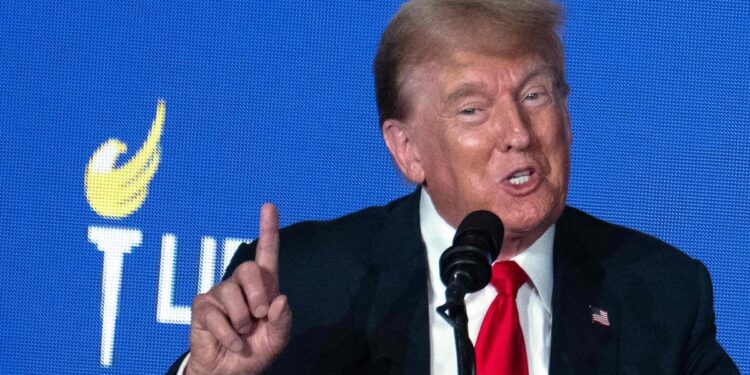The twelve jurors in Donald Trump’s trial for hidden payments to an adult movie star in the middle of the 2016 presidential campaign will soon begin deliberating to decide the legal fate of the former President of the United States.
• Read also: What to remember from testimony at Donald Trump’s trial
• Read also: Trump trial: end of debates without testimony from the former president
• Read also: Trump’s return to the presidency: Canada must prepare for uncertainty and chaos, says one of his ex-advisors
What are the possible scenarios?
What question will the jurors have to answer?
During the debates, the jurors heard pornographic film actress Stormy Daniels crudely detail her meeting and the sexual relationship she claims to have had with the Republican billionaire in 2006, and which the latter denies.
The former confidant of the Republican billionaire, Michael Cohen, assured them that Donald Trump had given him the green light to pay the actress $130,000 so that she would keep silent about this episode, at the very end of the 2016 presidential campaign. A version also denied by the defense.
But ultimately, the jury won’t have to say whether the relationship took place, or whether it was legal to pay the actress. In essence, the question will be: Was Donald Trump guilty or not of 34 falsifications of accounting documents to conceal the reimbursement of this sum to Michael Cohen, throughout 2017?
For the prosecution, these offenses are materialized by false invoices, checks (some of which signed by Donald Trump) and false entries in the accounting books of the Trump Organization group.
To find Donald Trump guilty, jurors will have to be convinced that these false documents were intended to conceal another crime. The accusation alleges electoral fraud, considering that the $130,000, which made it possible to hide information from voters, is a donation or an illegal campaign expense. A demonstration which risks “disconcerting some jurors”, estimates John Coffee, professor of law at Columbia University.
What are the jurors’ options?
Guilty or not guilty, the jurors must decide unanimously.
Another scenario is however possible: the 12 jurors could come to a conclusion of disagreement. The trial would be canceled and Donald Trump could claim victory. But it would only be temporary, because another trial would be organized unless the Manhattan prosecutor’s office drops the charges. It remains to be seen whether this new trial would take place before the presidential election on November 5.
To convict a criminal defendant, U.S. law requires jurors to be convinced beyond a reasonable doubt. The defense therefore only needs a juror refusing to convict Donald Trump to offer itself a victory, or a respite. The 12 jurors and their answers to questions during the selection process were closely scrutinized by observers. One of them cited Donald Trump’s social network, Truth Social, among the media he visited.
But in New York, a Democratic stronghold, everyone promised that they would judge the 45th president of the United States impartially.
What punishment?
If Donald Trump is found guilty, it will not be up to the jurors, but to Judge Juan Merchan, to set the sentence a few weeks later. Prison is possible in theory, with falsification of accounting documents being punishable by up to 4 years in New York State. But faced with a first-time convict who will soon celebrate his 78th birthday, the magistrate can also stick to an alternative sentence such as a suspended sentence with probation, or community service. A financial fine is also possible. In any case, he will be able to appeal, which would probably have the effect of suspending a prison sentence.
A criminal conviction, the first in history for an American head of state, would not prevent him from running in the presidential election on November 5. But it would cause a political earthquake.
It remains to be seen what effect it would have on the Republican electorate and on undecided voters, who will be crucial in the duel between Joe Biden and Donald Trump.



